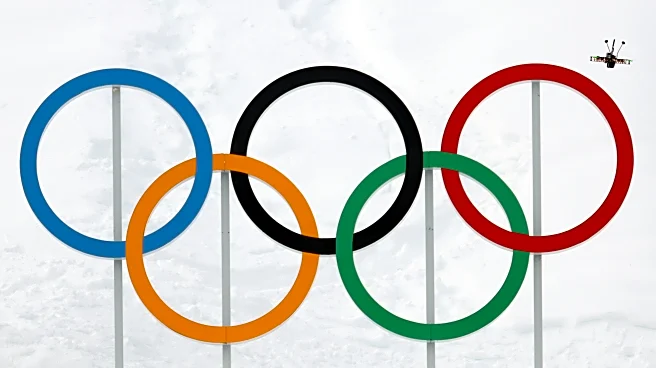What is the story about?
What's Happening?
India's Finance Minister Nirmala Sitharaman has announced that India will continue purchasing Russian oil, despite demands from U.S. President Donald Trump to halt these transactions. This decision comes as India seeks to manage its import expenses, with Russian oil offering a cost-effective solution. The Trump administration has responded by doubling tariffs on Indian goods to 50%, one of the highest rates globally, in an attempt to pressure India into compliance. Commerce Secretary Howard Lutnick reiterated the U.S. stance, emphasizing the need for India to cease its Russian oil imports. The situation is further complicated by India's growing ties with China, as highlighted by recent meetings between Indian, Russian, and Chinese leaders at the Shanghai Cooperation Organisation Summit.
Why It's Important?
The continuation of Russian oil purchases by India has significant implications for international relations and economic policies. For the U.S., India's defiance represents a challenge to its geopolitical strategy, particularly in the context of its stance against Russia. The increased tariffs could adversely affect India's economy, with Citigroup Inc. estimating a potential 0.6-0.8 percentage point reduction in India's annual GDP growth. This situation underscores the complexities of global trade dynamics, where economic decisions are influenced by political alliances and strategic interests. The tariffs also pose a risk to Indian exporters, prompting the government to consider measures to mitigate the impact.
What's Next?
India is expected to continue its strategic engagement with both Russia and China, potentially leading to further diplomatic tensions with the U.S. The Indian government is exploring options to support businesses affected by the high tariffs, indicating possible economic relief measures. The evolving geopolitical landscape may prompt further discussions and negotiations among the involved nations, as they navigate the implications of these economic and political decisions.
Beyond the Headlines
The situation highlights the broader geopolitical shifts occurring in Asia, with India balancing its relationships with major global powers. The decision to maintain Russian oil imports reflects India's prioritization of economic stability over political pressures. Additionally, the deepening ties between India, Russia, and China could signal a shift in regional alliances, potentially impacting global trade and diplomatic relations.
















